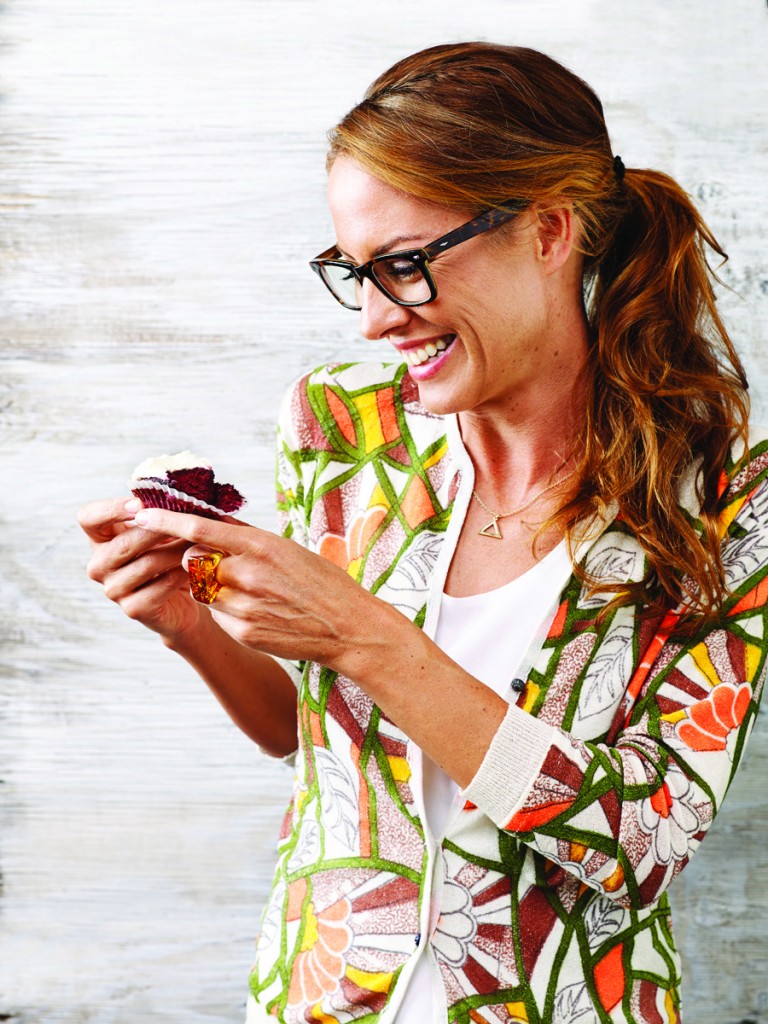
Journalist, TV presenter and now bestselling author of I Quit Sugar, Australian lifestyle icon Sarah Wilson talks to us about the switching to, and the benefits of, living sugar-free…
What was your trigger to turning sugar-free?
I have an autoimmune disease and had been told for years I should quit sugar. The idea was far too scary to contemplate, as it is for most. Tell someone to quit, say, peanuts, and they just don’t shudder in the same way. I then decided to experiment with the idea and quit for two weeks. I wrote about it for the newspaper column I was writing at the time. It felt so good, so right – I lost weight immediately and had much better energy levels – that I just kept going, And going. It’s been over three years now.
Do you think we can be addicted to sugar?
Yes! It’s a proven fact. Leaving aside the very serious health issues – cholesterol, fatty liver, metabolic syndrome, heart disease and diabetes – I think the real problem is its addictiveness (some studies show it’s more addictive than cocaine). We are prisoners to sugar, in part because we lack the hormone to tell us when we’re eating it, so we keep eating it and eating it. By contrast, we have hormones that tell us when we’ve eaten enough fat and protein. If we weren’t so addicted, we wouldn’t be killing ourselves with it – we’d have done something about it.
How hard did you find the initial few weeks on a sugar-free diet?
The ‘metabolic shift’, that is; the switch to burning fat and protein instead of cheap shots of sugar, took about four weeks for me. It can take some longer. I researched the topic thoroughly and formulated the best way to quit, so you don’t have withdrawal, so you lose weight and so you can stay off it for good.
What advice do you have for those embarking on a sugarless diet?
Quitting sugar is a robust start. Being kind and gentle and enjoying the experiment is always my advice. There are three foods you can stop eating right now: fruit juice (there’s the same amount of sugar in a glass of apple juice as a glass of cola), low-fat dairy (they replace the fat with sugar in most cases) and packaged sauces (barbecue sauce is 50 per cent sugar). Secondly, put a slice of haloumi in a sandwich press at work or home, cook and eat as an afternoon snack instead of a muffin or chocolate bar. Why? The good, healthy fat will tell your brain it’s full within about 5 minutes. Also, drink liquorice tea; it tastes sweet and it actually curbs sugar cravings on the spot!
What are the most common pitfalls affecting anyone taking up the diet?
The emotional addiction was the hardest. I used to reward and comfort myself with sugary food. I overcame this hurdle by substituting sweet treats with savoury snacks. We’ve always been told to eat plenty of fruit, but how does that sit in a sugar-free diet regarding fructose? Fruit, eaten as the whole fruit, and one to two pieces a day, is fine. Fruit juice is not. A glass of apple juice contains 10-12 tsp of sugar. Dried fruit in mueslis etc are no good for you either – it’s 70 per cent sugar. When you do my 8-Week Program, you cut out all sugar (including fruit) for six weeks. We then reintroduce whole fruit (never fruit juice). One or two pieces of low-fructose fruit a day is great, if you’re not eating other forms of sugar.
How do you negate the afternoon lull when all you can think of is a ‘pick-me-up’ energy infusion?
The thing is, energy slumps happen because of sugar. Imagine our energy burning set-up is a fire. When we eat sugar we are feedingthe fire with little bits of paper and thin sticks, so we have to keep feeding it to keep the fire going. But when we take sugar out, and turn, instead, to protein and fat-based snacks, like nuts, cheese, eggs etc, it’s like throwing a big solid log on the fire. We can then walk away for a good 4-5 hours before we need to feed it again. Once off sugar, you simply don’t have the energy slumps. Plus, a few almonds will fix the issue way better than sugar will anyway.
Are restaurants making it easier for those on a sugar-free diet, or is it something that has not been fully embraced yet?
I think we’re starting to see a shift – I’m noticing more sugar-free options in some cafes here in Australia. Always check what their version of ‘sugar-free’ is though, because a lot of so-called ‘healthy’ options are still made with agave (averages at 70 per cent sugar) and other sweeteners I wouldn’t necessarily recommend.
What ingredients do you always keep in your pantry or fridge?
Coconut oil, homemade sauerkraut, camomile tea, courgettes. Often some of my homemade sugar-free chocolate too!
Find out more about Sarah and her no-sugar diet on her website. You can also find her on Facebook and Twitter.

